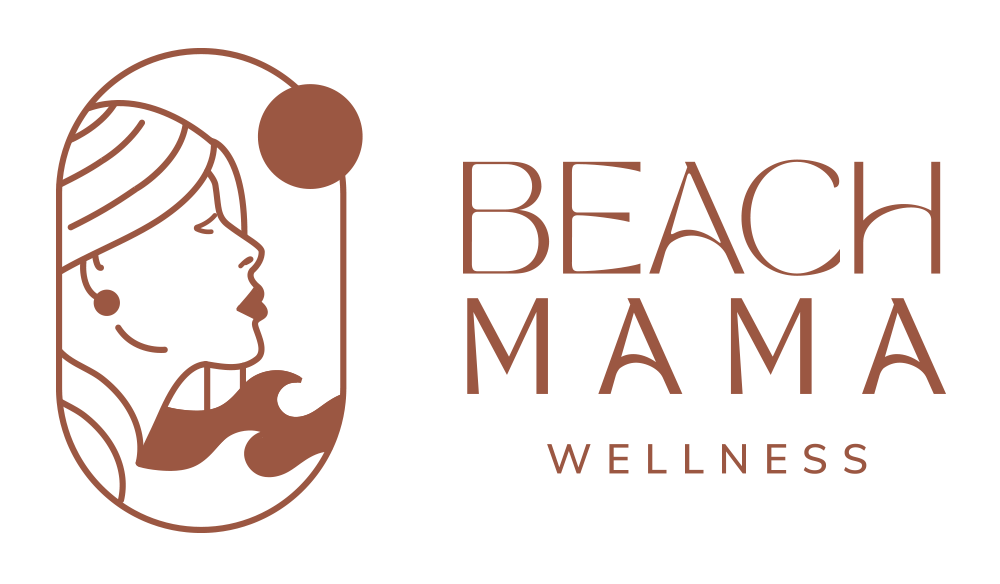Vaginal Birth Recovery: The Top 5 Items Your Vagina Needs
We can all Google a list for “postpartum recovery items”… heck, at this point, you can buy a whole kit from brands like Frida Mom. But you won’t find some of our biggest ‘game changer’ items in these kits; in fact, you may not find them on most lists.
Whether you have perineal tearing, trauma or a perfect vaginal delivery, it was traumatic for your pelvic floor and vagina. Swelling, inflammation, pain and much more are normal during this immediate time post birth. Our primary goals during this time are to manage that swelling and inflammation and decrease your pain level to optimize healing, minimize scar tissue and of course, make you as comfortable as possible.
My list is fairly similar to what you find on the web: peri bottles, Tuck’s Pads, mesh undies, etc. but we’ve got a few additions that will optimize your postpartum healing and won’t be given as a free handout at the hospital.
Compression Leggings:
Just go ahead and throw these bad boys into your hospital bag now and plan on these being your “going home” outfit… and then leave them on for the next couple of weeks. Compression leggings are very different from belly binders or corsets (which I do not recommend, by the way); these pants provide a graded compression away from the pelvic floor and perineum. They gradually work the swelling and inflammation out of the area and provide excellent support to your pelvic floor and core, reducing symptoms of prolapse and pain. My favorite brand is SRC and for a slightly lower price point: BaoBei. Both of these leggings come in short and undies form as well!
Perineal Ice Packs
It always amazes me that this is not the first thing (other than your baby) handing to a woman in the recovery room after having a vaginal birth; in fact, often times its not handed to your at all… like during your entire hospital stay. You may have to ask your nurse for a perineal ice pack but trust me, they have them and they are very worth the ask. Whether you have trauma to your perineum or not, you will be swollen. Ice is excellent for for decreasing pain and swelling… making you that much more comfortable. Early icing of your perineum can also help to decrease your changes of developing large amounts of scar tissue and other dysfunction. Don’t stop icing at the hospital, have these ready to go at home as well. You can absolutely go down the route of a padsicle and have these prepped and ready to go in your freezer at home but if you’re like me and have very little time, grab these off of amazon. Apply your ice pack for 10-15 minutes at a time (I suggest placing between your underwear and leggings for some compression as well) and repeat 3-5 times per day during that first week home.
Bone Broth
Okay, this is an interesting ‘product’ to suggest, I know. But holy cow is bone broth amazing for you postpartum. Stock your freezer, use it when prepping your meals ahead of time, heck, you might as well bathe in it . Why do I love bone broth SO MUCH? First of all, it’s high in nutrients and easy for our body to digest (digestion can be a little dicey immediately postpartum due to many factors). The richness in protein is excellent to aide our tissues in healing and when lactating, our nutritional demands increase making this extra protein essential. The other benefit? Collagen! Collagen can help to heal the muscles that have been stretched, cut, stitched... you name it, collagen can help rebuild it. It also helps the tissues in our pelvic floor, abdominal muscles and uterus to heal. My favorite brand is Brodo, they’re a subscription that will drop it off right at your door… what could be easier when you’ve just had a kid?
Magnesium
Many of you may have been taking this supplement throughout pregnancy; it’s great for helping with regular bowel movements, sleep and anxiety. But did you know that taking it postpartum is an excellent idea as well? Constipation is normal in the first few days after having a baby, for a multitude of reasons; regardless, that first poop is scary. The last thing your body (and mind) need at this point are difficult bowel movements. Magnesium will help to keep those pelvic floor muscles relaxed to allow for an easier time passing your stool. Many of us will experience perineal tearing and hemorrhoids from our birthing experiencing; constipation on top of this can create more pain and add to the trauma. Keeping your muscles as relaxed as possible, your stool as soft as possible (don’t forge to drink plenty of water) will make this process less scary. Magnesium is safe while breastfeeding and will hopefully allow you to get some better sleep as well!
Sitz Bath
You can either purchase a special sitz bath that fits right over your toilet or you can utilize your bathtub and fill it with a couple inches of water. It is meant to submerge your perineum in a solution to decrease pain, itchiness, inflammation and will help to keep the area clean as well! Again, whether you’ve torn, had an episiotomy or have had no trauma at all, you will more than likely be sore down there. Sitz Bath’s increase blood supply to your perineum which improves and supports healing, helps to relax the muscles around your perineum and pelvic floor which decreases pain and makes BM’s a bit easier, and can reduce itchiness from stitches or hemorrhoids. You can start this immediately; soak once a day for no more than 20 minutes at a time. Don’t forget to have your sitz bath solution on hand.


